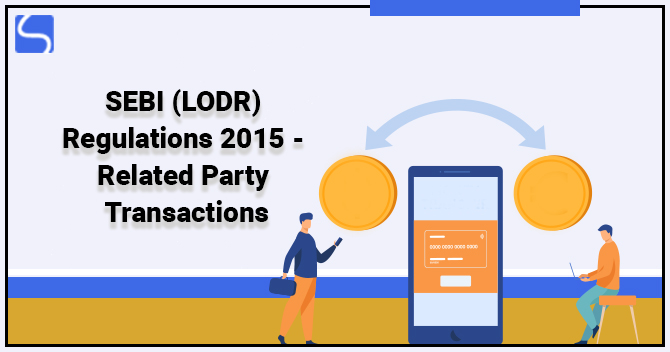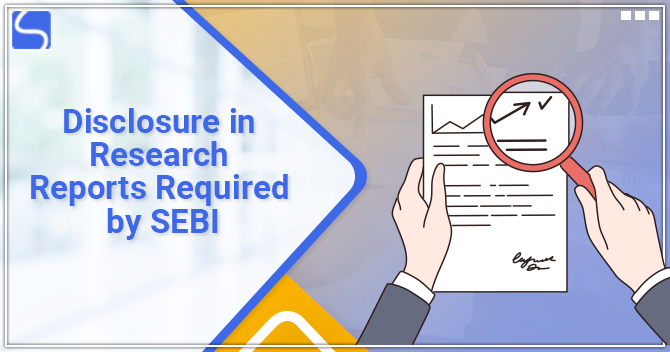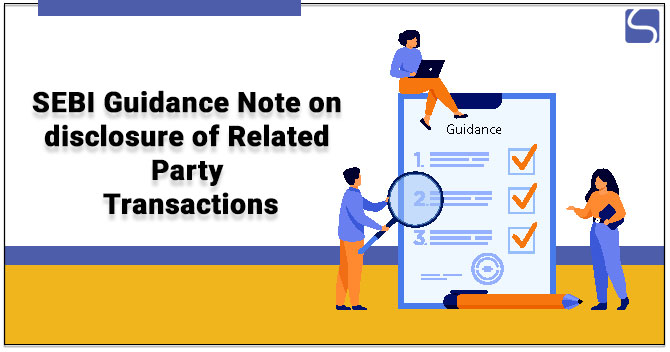SEBI (LODR) Regulations 2015 – Related Party Transactions

Karan Singh | Updated: Jul 31, 2021 | Category: SEBI Advisory
In a company, whether a public or a private, listed or unlisted companies, at the time of course of their business, enter into dissimilar transactions with more than one party. Consisting of its concerning parties. Having transactions with the concerned parties is a standard rule of any business. By taking into account the relationship, related parties can enter into dissimilar transactions that unrelated parties would not. Transactions entered with associated parties involves different concerns; hence the regulator has presented transparency for the related party transactions under SEBI (LODR) Regulations 2015. In this write-up, we are going to understand the related party transactions under the SEBI (LODR) Regulations 2015.
Table of Contents
Related Party Transactions under the SEBI – Meaning
It mentions transactions that an entity or a company does at the time of its business with parties associated with it. In simple words, it refers to a deal between two parties merged by a previous business common interest or relationship. Companies or entities like to acquire business deals with such parties with whom they have an intimacy or avail common interest. Such transactions are legitimate in nature, but they can create a clash of interests or other problems.
Relevant Regulations Appropriate on Related Party Transactions
Following are some relevant regulations appropriate on Related Party Transactions:
- Companies Act, 2013: Section 177 and Section 188 of the Act.
- Rules (Companies Meeting of Board & its Power) Rules, 2014.
Listed entities are regulated by SEBI (LODR) Regulations, 2015 (Listing Obligations & Disclosure Requirements).
Explanation of Related Party Transactions under Companies Act or SEBI (LODR) Regulations 2015
Section (ZB) of the SEBI (LODR) Regulations 2015 tells that associated parties are individuals or companies that have related authority over the other party or practices important control over the different party, directly or indirectly to the entity. Parties are deemed to be linked in the case where a party has the capability to make financial and operating decisions and comprises an individual or a close member of such individuals’ family who is associated to an entity in case that individual is a related party under Section 2(76) of the Companies Act, 2013, which in suggestion to a company means:
- A company wherein a manager, director or their relative is a partner;
- Anyone corporate whose BODs (Board of Directors), the manager is familiar to act accordingly to the advice or orders of a manager or director of a company;
- Any entity that is a subsidiary, holding or a related company or a holding company’s subsidiary to which it’s also a subsidiary;
- A KMP or his/her relative;
- A private entity wherein a manager or a director or his/her relative is a director or member;
- Anyone company wherein a manager is a director and holds along with his or her relatives, more than 2% of its paid-up share capital;
- Anyone on whose orders or counsel a director or a manager is familiar to act;
- A director or his/her relative;
- Such other individual as may be prescribed.
Regulation of the Related Party Transactions under Companies Act 2013 or SEBI (LODR) Regulations 2015
An associated party is not prohibited under the SEBI or the Companies Act. But, regulations determine the conditions as a measure of protection that has to be pursued by the entities when dealing with the related party transactions.
As long as the primary highlights of the regulations are concerned, clearness in dealing and required disclosures to be made to the board members & shareholders are vital aspects.
Following are some significant actions to be taken by an entity or a company:
- Role of Company Secretary (CS): The CS or Company Secretary should work with the board members, CFO (Chief Financial Officer) and make sure to bring out the sturdy policy in order to fulfil the regulatory requirements. The CS also makes sure that the compliances are fulfilled.
- Role of AC (Audit Committee): The (Audit Committee) has to govern and find out RPT under the Companies Act, 2013 and under the SEBI (LODR) Regulations 2015[1]. The Audit Committee should design the control process of the company internally for RPT.
- Preparation of Policy on Related Party Transactions under SEBI: As it’s a compulsory necessity under the SEBI (LODR) Regulations 2015, the company should plan a policy on RPT for the company. It will aid in strengthening the company governance structure and would show the company’s value, and stakeholders would desire to get linked with the company. Such policy should specify the objective, procedure, scope, recognition of Related Party Transactions.
- Role of CFO: The Chief Financial Officer is accountable for executing, planning, and running the concerning financial activities of the company or entity. Hence, the Chief Financial Officer is required to make sure that adherence is made to all provisions of the Companies Act and also with the provisions of SEBI (LODR) Regulations 2015 and suggestions to the accounting benchmarks applicable. Moreover, take care in ensuring compliance with especially recognising RPTs, inspecting it is on the basis of arm’s length or otherwise.
Conclusion
The primary purpose of having a policy on RPTs under the SEBI (Securities and Exchange Board of India) is to make sure reporting of transactions as applicable between the company and its linked party without prejudice. It will aid in taking transparent quality information to all stakeholders as the consent process is put in place by listed entities or companies.
Read our article:SEBI Decides to Relax Timelines for Compliance Requirements














